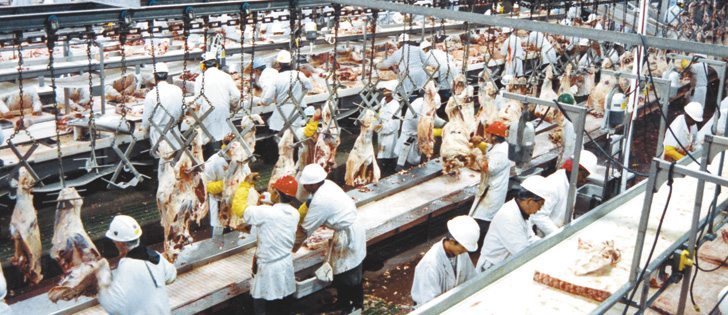Tackling world hunger will require multi billion-dollar investments, close government-private sector collaboration and the spread of market practices in developing countries, says an international development expert funded by Syngenta.
Marco Ferroni, based in Basel, Switzerland, as executive director of the Syngenta Foundation for Sustainable Agriculture, was in Ottawa recently to promote his vision to officials at the Canadian International Development Agency.
He said it will require investment in small-scale agriculture, services to improve developing world agronomic practices, better seeds to increase productivity and a market model that makes inputs and finances available and farm sales profitable.
Read Also

Agritechnica Day 2: The future of tractor power, building quicker crop apps and large farms and tech
Agritechnica Day 2: The future of tractor power, building quicker crop apps with Syngenta and large farms and tech
Creating functioning markets for input supplies and increasing crop science research and development are important for the anti-hunger campaign, Ferroni said in a presentation to CIDA staff Oct. 8.
“Public-private partnerships, or perhaps more broadly, partnerships of the right kind that bring together public, private and not-for-profit actors, are necessary for both of these purposes.”
His visit to Ottawa came as the United Nations Food and Agriculture Organization was announcing that during the past year of financial crisis, 100 million people were added to the list of chronically under-nourished in the world, raising the total to more than one billion. It is the highest level in four decades.
More than a decade ago when the hunger count was 800 million, FAO members vowed to cut it in half by 2015. Instead, it has grown by 25 percent.
When releasing its annual Hunger Report, the FAO said high commodity prices during the past year, the financial recession and a lack of investment in developing world agriculture all contributed to the sharp increase during the past year. It said demand for grain as a biofuel feedstock is part of the problem.
Ferroni said in an interview the private sector must be involved in any solution to growing world hunger.
“Aid is one thread in the answer, but the solution is much broader,” he said. “There are hundreds of millions of small-scale farmers. Aid and the efforts of (non-governmental organizations) reach hundreds of thousands, but if you want to reach hundreds of millions, you can only do it through developing markets.”
In his presentation to CIDA, Ferroni said better crop varieties are one key to more sustainable agricultural production in areas short of food.
Syngenta, which sponsors Ferroni’s non-profit sustainable agriculture foundation, is one of the companies creating the crop protection inputs and new seed varieties, including genetically modified seeds, that he said are a key part of the drive to increase food production.














